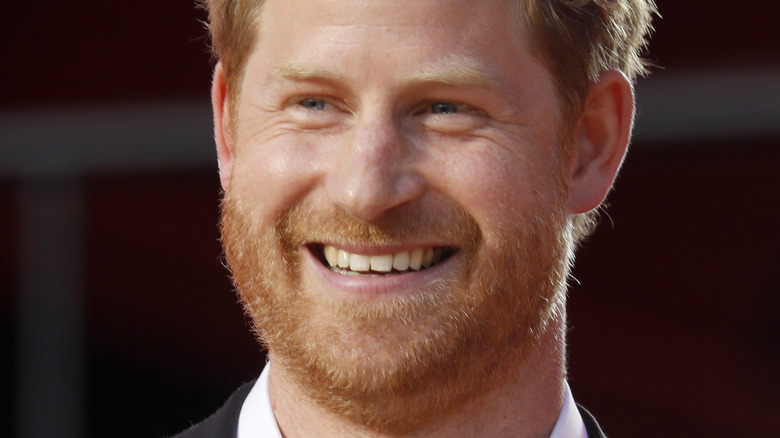Inside The Public Action Plan Prince Harry Just Released
Fake news has had a deep impact on media consumption in the past few years, especially with the unprecedented rise in internet users worldwide. According to a 2021 Edelman survey, trust in media worldwide has seen an 8% drop in the past year, with 59% of the survey respondents feeling that news organizations fabricate and exaggerate information to support an ideology. The role of social media in the propagation of fake news and misinformation can also be not denied. According to another study, about 56% of Facebook users could not differentiate between real and fake news.
The stats around fake news are enough to draw attention from world leaders, concerned individuals, and organizations. Now, there's a new name on the long list of fake news crusaders: Prince Harry, who played a major role in releasing a report on combating fake news as a "commissioner on disinformation." The report was released in collaboration with U.S based think tank, the Aspen Institute.
Per Mail Online, the report is based on a six-month-long study that looks at the "avalanche"-like impact of misinformation on behalf of the Aspen Institute, which is based in Washington DC. The Duke of Sussex is one of the 15 commissioners and three co-chairmen who have worked on releasing the report. Announcing the report's release, Harry's Archewell website reported that the duke and his "colleagues" have come up with 15 specific recommendations that leaders can adapt across "public, private and non-profit sectors."
Prince Harry recommended an increase in media transparency and trust
Joined by his colleagues, Archewell's co-founder Prince Harry released a report on fake news and media misinformation, recommending 15 measures to effectively combat this rising problem. "For the better part of a year, we at the Aspen Commission have met regularly to debate, discuss, and draft solutions to the mis- and disinformation crisis, which is a global humanitarian issue," Harry said, per Archewell. "I hope to see the substantive and practical recommendations of our Commission taken up by the tech industry, the media industry, by policymakers, and leaders. This affects not some of us, but all of us."
The report called for an increase in social media transparency and disclosure and stressed the importance of "reversing the collapse of local journalism and the erosion of trusted media." It also highlighted community-led methods to improve dialogue and resist information power and its imbalance, along with holding "superspreaders" accountable for their online lies. The report guidelines also recommend that media platforms disclose certain data categories to aid research in the public interest by qualified academic researchers. Some of the other recommendations in the report included ad transparency content moderation platform disclosure, healthy digital discourse, workforce diversity, local media investment, and accountability norms, among others.
Harry's joint report manages to highlight several discrepancies in the function of social media platforms in relevance to facts and providing information. What becomes of the guidelines — and if they are adopted at all — remains to be seen.


